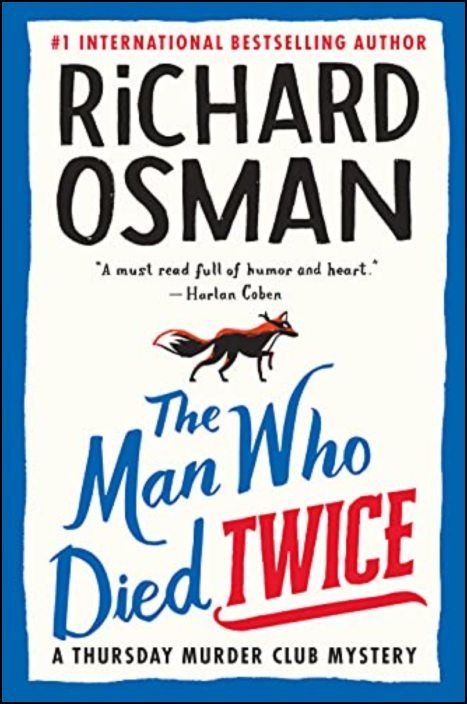The Bullet That Missed, the third installment in the Thursday Murder Club series, is forthcoming!
Elizabeth, Joyce, Ron and Ibrahim—the Thursday Murder Club—are still riding high off their recent real-life murder case and are looking forward to a bit of peace and quiet at Cooper’s Chase, their posh retirement village.
But they are out of luck.
An unexpected visitor—an old pal of Elizabeth’s (or perhaps more than just a pal?)—arrives, desperate for her help. He has been accused of stealing diamonds worth millions from the wrong men and he’s seriously on the lam.
Then, as night follows day, the first body is found. But not the last. Elizabeth, Joyce, Ron and Ibrahim are up against a ruthless murderer who wouldn’t bat an eyelid at knocking off four septuagenarians. Can our four friends catch the killer before the killer catches them? And if they find the diamonds, too? Well, wouldn’t that be a bonus? You should never put anything beyond the Thursday Murder Club.
Richard Osman is back with everyone’s favorite mystery-solving quartet, and the second installment of the Thursday Murder Club series is just as clever and warm as the first—an unputdownable, laugh-out-loud pleasure of a read.
Ler mais
Marcel Proust
Marcel Proust nasceu a 10 de Julho de 1871, em Auteuil, filho de Adrien Proust, um professor de medicina conceituado, e de Jeanne Weil (nome de nascimento), de uma família judaica abastada. Posicionou-se, entre 1897 e 1899, a favor da libertação do capitão do exército Alfred Dreyfus, injustamente acusado de traição à pátria. A morte do pai e da mãe, em 1903 e 1905, deixaram-no numa solidão e desgosto profundos, conferindo-lhe, por outro lado, a independência financeira que lhe permitirá mais tarde dedicar-se exclusivamente à sua obra maior, À la recherche du temps perdu [Em Busca do Tempo Perdido], publicado em sete volumes, entre 1913 e 1927. Antes do romance, Proust escreveu um livro de contos, Les plaisirs et les jours, publicado em 1896, e uma novela autobiográfica, Jean Santeuil, que saiu postumamente em 1952. Traduziu The Bible of Amiens e Sesame and Lilies do crítico inglês John Ruskin, e publicou, em 1919, Pastiches et Mélanges, uma recolha de prefácios e artigos. Em Contra Sainte-Beuve, obra fragmentária e inacabada, escrita entre 1908 e 1909, e publicada postumamente em 1954, Proust revela-se um extraordinário crítico literário. De 1914 até ao fim da vida, Proust teve como governanta Céleste Albaret, testemunha privilegiada da composição de Em Busca do Tempo Perdido, e autora do livro de memórias Monsieur Proust (Imprensa da Universidade de Lisboa, 2018). Proust morreu em Paris, a 18 de Novembro de 1922, não sem antes ter posto um termo ao romance com a escrita da palavra «Fim».
Ler mais 
